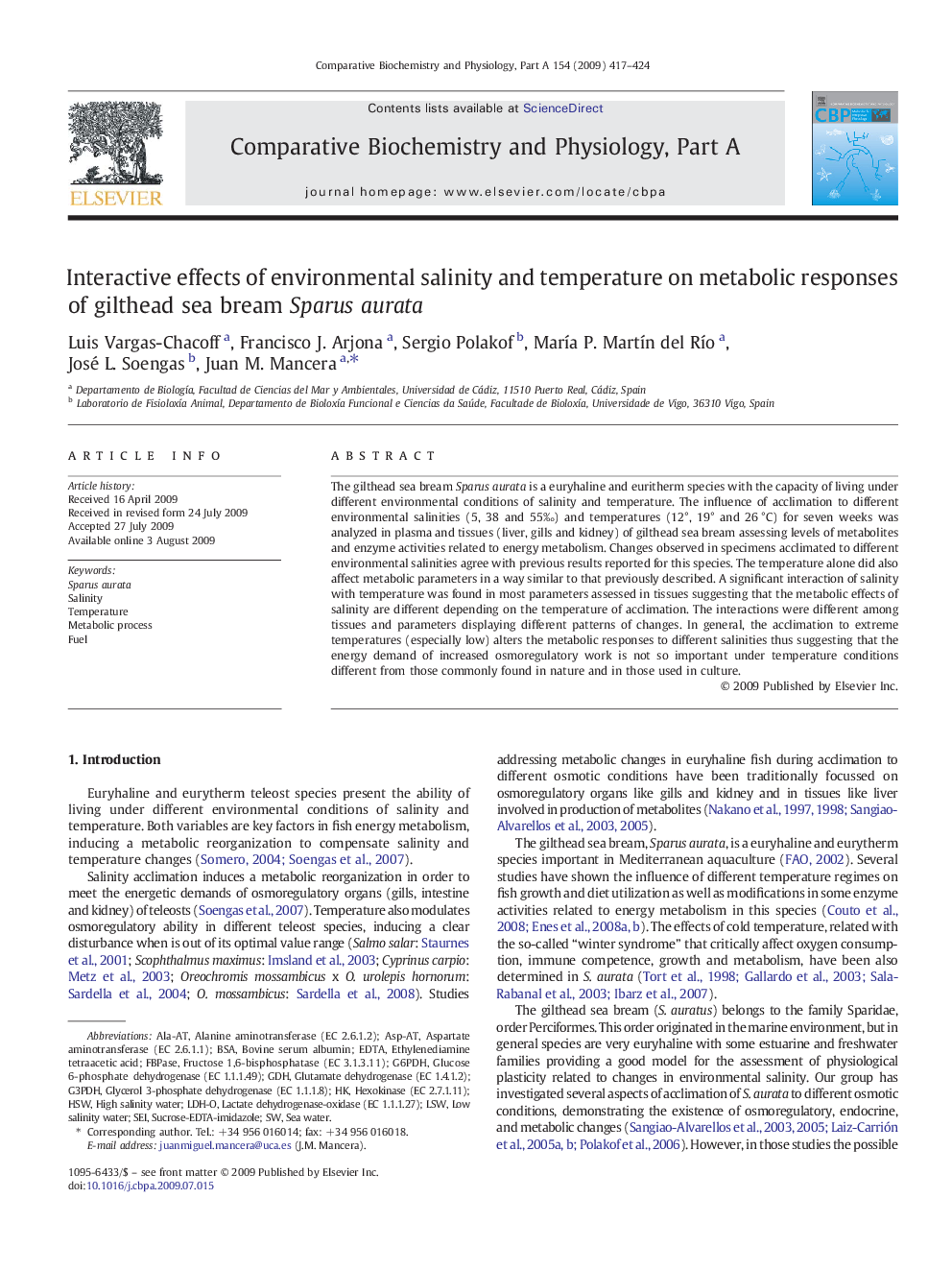| Article ID | Journal | Published Year | Pages | File Type |
|---|---|---|---|---|
| 1972739 | Comparative Biochemistry and Physiology Part A: Molecular & Integrative Physiology | 2009 | 8 Pages |
The gilthead sea bream Sparus aurata is a euryhaline and euritherm species with the capacity of living under different environmental conditions of salinity and temperature. The influence of acclimation to different environmental salinities (5, 38 and 55‰) and temperatures (12°, 19° and 26 °C) for seven weeks was analyzed in plasma and tissues (liver, gills and kidney) of gilthead sea bream assessing levels of metabolites and enzyme activities related to energy metabolism. Changes observed in specimens acclimated to different environmental salinities agree with previous results reported for this species. The temperature alone did also affect metabolic parameters in a way similar to that previously described. A significant interaction of salinity with temperature was found in most parameters assessed in tissues suggesting that the metabolic effects of salinity are different depending on the temperature of acclimation. The interactions were different among tissues and parameters displaying different patterns of changes. In general, the acclimation to extreme temperatures (especially low) alters the metabolic responses to different salinities thus suggesting that the energy demand of increased osmoregulatory work is not so important under temperature conditions different from those commonly found in nature and in those used in culture.
